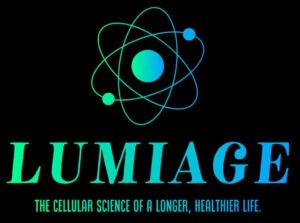
The Vital Role of Endocrine Organs
Endocrine glands regulate essential body functions by producing hormones that control metabolism, blood sugar, stress responses, and hydration. Key examples include insulin, thyroid hormones, and adrenal hormones. Diabetes, the most common endocrine disorder, affects an estimated 425 million people globally.
Understanding Diabetes
Diabetes arises when insulin—a hormone critical for glucose uptake—is insufficient or when cells respond poorly to it. This results in high blood sugar, which triggers the formation of harmful Advanced Glycation End products (AGEs). AGEs contribute to complications such as retinopathy, kidney failure, heart disease, neuropathy, poor circulation, diabetic wounds, and even amputation.
Natural Repair Potential with Stem Cells
Research shows that stem cells can transform into functional insulin-producing pancreatic cells and help form new blood vessels, enhancing pancreatic function. Endogenous Stem Cell Mobilization (ESCM) allows the body to release its own stem cells, supporting improved pancreatic activity and better blood sugar control.
Stem Cell Levels and Diabetes Progression
As diabetes progresses, circulating stem cell numbers decline, reducing the body’s natural repair capabilities. Elevated blood sugar further limits stem cell release, creating a feedback loop that accelerates complications. Supporting stem cell mobilization can help break this cycle, improving both pancreatic and overall endocrine health.
Thyroid and Adrenal Support
Early research also suggests that bone marrow stem cells can differentiate into functional thyroid and adrenal cells, offering potential benefits for broader endocrine system support.
Conclusion
While no cure exists for diabetes or many endocrine disorders, enhancing the release of your own stem cells through natural methods can improve pancreatic function, support blood sugar regulation, and promote overall endocrine health.
Sources:
- Advanced glycation end products and diabetic complications.
Singh VP, Bali A, Singh N, Jaggi AS. Korean J Physiol Pharmacol. 2014 Feb;18(1):1-14. - Differentiation of rat marrow mesenchymal stem cells into pancreatic islet beta-cells.
Chen LB, Jiang XB, Yang L. World J Gastroenterol. 2004 Oct 15;10(20):3016-20. - In vivo derivation of glucose-competent pancreatic endocrine cells from bone marrow without evidence of cell fusion.
Ianus A, Holz GG, Theise ND, Hussain MA. J Clin Invest. 2003 Mar;111(6):843-50. - Recruitment of bone marrow-derived endothelial cells to sites of pancreatic beta-cell injury.
Mathews V, Hanson PT, Ford E, Fujita J, Polonsky KS, Graubert TA. Diabetes. 2004 Jan;53(1):91-8. - Mechanisms of therapeutic effects of granulocytic colony-stimulating factor in experimental diabetes mellitus.
Gol’dberg ED, Dygai AM, Zhdanov VV, Zyuz’kov GN, Ermakova NN, Vetoshkina TV, Fomina TI, Ermolaeva LA, Dubskaya TY. Bull Exp Biol Med. 2008 Oct;146(4):543-6. - Bone marrow (BM) transplantation promotes beta-cell regeneration after acute injury through BM cell mobilization.
Hasegawa Y, Ogihara T, Yamada T, Ishigaki Y, Imai J, Uno K, Gao J, Kaneko K, Ishihara H, Sasano H, Nakauchi H, Oka Y, Katagiri H. Endocrinology. 2007 May;148(5):2006-15. - Autologous nonmyeloablative hematopoietic stem cell transplantation in newly diagnosed type 1 diabetes mellitus.
Voltarelli JC, Couri CE, Stracieri AB, Oliveira MC, Moraes DA, Pieroni F, Coutinho M, Malmegrim KC, Foss-Freitas MC, Simões BP, Foss MC, Squiers E, Burt RK. JAMA. 2007 Apr 11;297(14):1568-76. - Auto-mobilized adult hematopoietic stem cells advance neovasculature in diabetic retinopathy of mice.
Tian B, Li XX, Shen L, Zhao M, Yu WZ. Chin Med J (Engl). 2010 Aug;123(16):2265-8. - Are granulocyte colony-stimulating factors beneficial in treating diabetic foot infections?: A meta-analysis.
Cruciani M, Lipsky BA, Mengoli C, de Lalla F. Diabetes Care. 2005 Feb;28(2):454-60. - Bone marrow cell mobilization by the systemic use of granulocyte colony-stimulating factor (GCSF) improves wound bed preparation.
Iwamoto S, Lin X, Ramirez R, Carson P, Fiore D, Goodrich J, Yufit T, Falanga V. Int J Low Extrem Wounds. 2013 Dec;12(4):256-64. - Time course and mechanisms of circulating progenitor cell reduction in the natural history of type 2 diabetes.
Fadini GP, Boscaro E, de Kreutzenberg S, Agostini C, Seeger F, Dimmeler S, Zeiher A, Tiengo A, Avogaro A. Diabetes Care. 2010 May;33(5):1097-102. - Number and function of endothelial progenitor cells as a marker of severity for diabetic vasculopathy.
Fadini GP, Sartore S, Albiero M, Baesso I, Murphy E, Menegolo M, Grego F, Vigili de Kreutzenberg S, Tiengo A, Agostini C, Avogaro A. Arterioscler Thromb Vasc Biol. 2006 Sep;26(9):2140-6. - Decreased circulating CD34+ cells are associated with progression of diabetic nephropathy.
Makino H, Okada S, Nagumo A, Sugisawa T, Miyamoto Y, Kishimoto I, Kikuchi-Taura A, Soma T, Taguchi A, Yoshimasa Y. Diabet Med. 2009 Feb;26(2):171-3. - Diabetes impairs hematopoietic stem cell mobilization by altering niche function.
Ferraro F, Lymperi S, Méndez-Ferrer S, Saez B, Spencer JA, Yeap BY, Masselli E, Graiani G, Prezioso L, Rizzini EL, Mangoni M, Rizzoli V, Sykes SM, Lin CP, Frenette PS, Quaini F, Scadden DT. Sci Transl Med. 2011 Oct 12;3(104):104ra101. - Diabetes impairs stem cell and proangiogenic cell mobilization in humans.
Fadini GP, Albiero M, Vigili de Kreutzenberg S, Boscaro E, Cappellari R, Marescotti M, Poncina N, Agostini C, Avogaro A. Diabetes Care. 2013 Apr;36(4):943-9. - Thyroid regeneration: how stem cells play a role?Kimura S. Front Endocrinol (Lausanne). 2014 Apr 14;5:55.
- Bone marrow stem cells repopulate thyroid in X-ray regeneration in mice.
Mikhailov VM, Sokolova AV, Serikov VB, Kaminskaya EM, Churilov LP, Trunin EM, Sizova EN, Kayukov AV, Bud’ko MB, Zaichik ASh. Pathophysiology. 2012 Feb;19(1):5-11. - Differentiation of mesenchymal stem cells into gonad and adrenal steroidogenic cells.
Yazawa T, Imamichi Y, Miyamoto K, Umezawa A, Taniguchi T. World J Stem Cells. 2014 Apr 26;6(2):203-12. - New directions for the treatment of adrenal insufficiency.
Ruiz-Babot G, Hadjidemetriou I, King PJ, Guasti L. Front Endocrinol (Lausanne). 2015 May 6;6:70.


